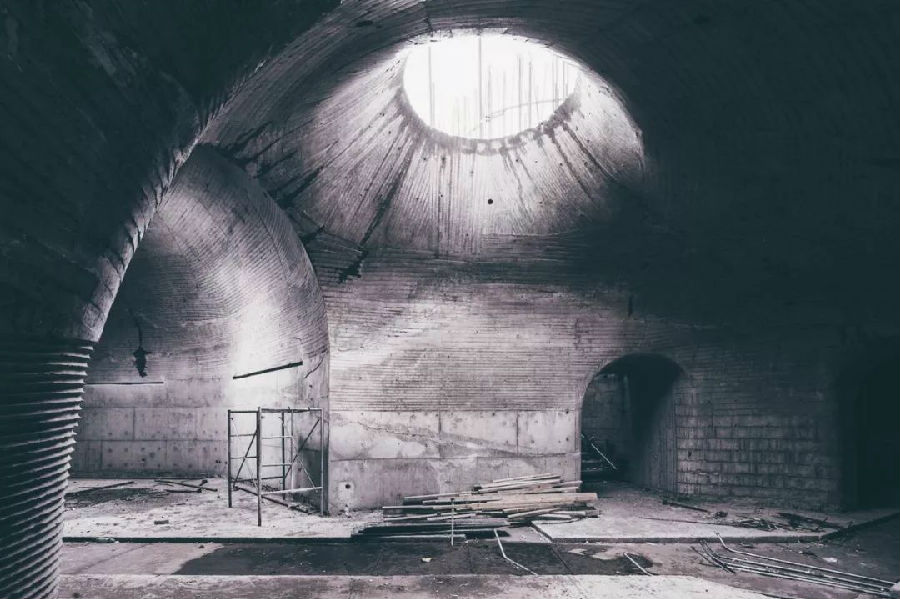《图书与艺术》版块
Contemporary art in China
中国当代艺术
The sands of time
时间之沙
A museum on the Chinese coast aims to merge with its environment
中国一个建在海岸的博物馆旨在与当地环境互文
Buried beneath a sand dune, in the beach town of Beidaihe, nestles one of China’s newest art galleries. An offshoot of the Ullens Centre for Contemporary Art in Beijing, 300km away, the UCCA Dune is unlike any other cutting-edge art museum in China. Most are high-profile architectural statements, erected in the middle of bustling cities. The Dune is subtle and secluded, its galleries unfolding against the backdrop of the sands.
这所中国最新的艺术画廊之一坐落在海滨小城北戴河,位于沙丘之下。UCCA沙丘美术馆是北京尤伦斯当代艺术中心(距秦皇岛300公里)的分馆。这座美术馆大部分为高调的建筑表现形式,伫立在繁华的市中心。沙丘美术馆微妙而隐蔽,整个画廊以沙子为背景。

Interdependence with the landscape and the local community is at the heart of the Dune’s purpose. It aims to be sustainable ecologically as well as financially, and to help protect the environment rather than destroying it. “Our work was not just to design a physical structure,” says Li Hu of OPEN Architecture, one of the overseers of the project, but to “dream up an entirely new type of institution.”
沙丘美术馆的核心目的是与自然景观和当地社区互文。其目标是实现生态和经济的可持续性,帮助保护环境而不是破坏环境。“我们的工作不仅是设计物理结构,而是设想一种全新的制度。”OPEN建筑事务所的李虎(沙丘项目的监督者之一)如是说。
Mr Li wanted to create a gallery that was not “juxtaposed” to its environment but “merged into it”. Instead of placing the museum on top of the dunes as was originally planned, he decided to bury the building beneath them to preserve the coastal ecology. The structure is heated by geothermal energy; its walls and windows and the wooden tables in its café were handmade from local materials, a tribute to the craftsmanship of the Hebei region. Because the museum is lit naturally by skylights, visitors’ experiences of the artwork will vary with the seasons and time of day.
李虎想要创建一个不仅是“并列”而且“融合”到环境的画廊。他没有像最初计划的那样把博物馆建在沙丘上,而是决定把建筑埋在沙丘下,以保护海岸生态。建筑采用地热能加热;墙壁、窗户和咖啡馆里的木桌都是用当地材料手工制作的,这是河北地区手工技艺的结晶。由于博物馆使用自然采光的天窗,游客对艺术品的体验会随着季节和时间的变化而变化。
译文由可可原创,仅供学习交流使用,未经许可请勿转载。













